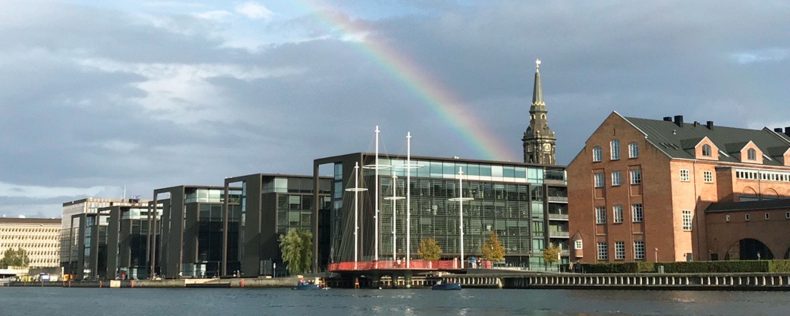What is bias?
Bias incidents, whether intentional or unintentional in their occurrence, contribute to creating an unwelcoming environment for individuals and groups at DIS.
Bias is defined as behavior that is received as an expression of negative or discriminatory conduct, speech, or expression against a person or property of another individual or group.
These expressions can be made in reference to a person’s or group’s real or perceived age, citizenship, color, creed, gender expression, gender identity, gender or sex, mental and/or physical disability, national origin/ancestry, political affiliation, political views, race, religion, sexual orientation.
While it is not always easy to recognize, bias can be present in the classroom, housing, transportation, and in public places.
What are incidents of bias?
Even when individuals are not aware of bias or do not intend to offend, bias may be revealed that is worthy of a response and can serve as an opportunity for education for the entire community.
Examples of bias incidents:
- Making negative or hurtful comments about someone’s disability, ethnicity, race, national origin, gender, gender identity or expression, sexual orientation, religion, or political affiliations/beliefs
- Using derogatory gestures or images/drawings based on a stereotype, or imitating someone’s cultural practices
- Using a racial, ethnic, or other slur to identify someone
Are all incidents of bias considered to be a violation of DIS Policy?
Incidents that violate DIS policy will be investigated according to the procedures outlined in the Student Conduct webpage, or applicable Human Resources Policies.
However, not all acts, incidents, and speech can be considered bias that violate DIS policy. DIS will respond to such incidents by connecting impacted parties and communities with appropriate education, support, and resources.
Some incidents may also be crimes under Danish or Swedish law and should be reported to police. The U.S. Embassy in Denmark and Sweden also provide support to victims of crimes.
DIS encourages all individuals of the community to engage in respectful dialogue and to uphold the values of DIS. For more information, please visit the DIS Mission and Values webpage.
Can bias be eliminated?
Yes, it is possible for bias to be significantly reduced, if not eliminated, but this requires recognizing and understanding your own bias and then actively responding to bias if a situation were to arise.
Bias Education Resources
Sometimes there are environmental, attitudinal, and physical factors that may not allow you to address bias, nor is it your burden to fight every battle, especially if you yourself experience bias.
If you feel safe, and if you are able, it may be possible to address bias and help the other person learn from the experience. You may also find some peace in having heard someone’s side.
Here are some strategies to refer to when addressing bias:
- Consider culture: Many people you will interact with while at DIS come from a different culture and background. They may not understand the impact of their words and actions
- Be direct: Tell the individual that their language, attitude, or behavior is concerning or hurtful
- Question: Ask the individual why they used that language or expressed that behavior
- Talk: Share why that language or behavior is offensive to you
- Inform: Discuss effective ways to shift bias language or behavior to be inclusive of all people
- Give transparency: This might be where you can share times when you have used bias language or behavior and what approaches you have actively integrated to learn more and understand your own biases
Equity and Inclusion at DIS
Incidents of bias can impact entire communities in profound ways, and DIS is certainly no exception to this fact. While we cannot erase the pain and harm that bias incidents cause to DIS students, we can take deliberate steps to revisit processes, practices, and systems.
View additional information about equity and inclusion at DIS.
